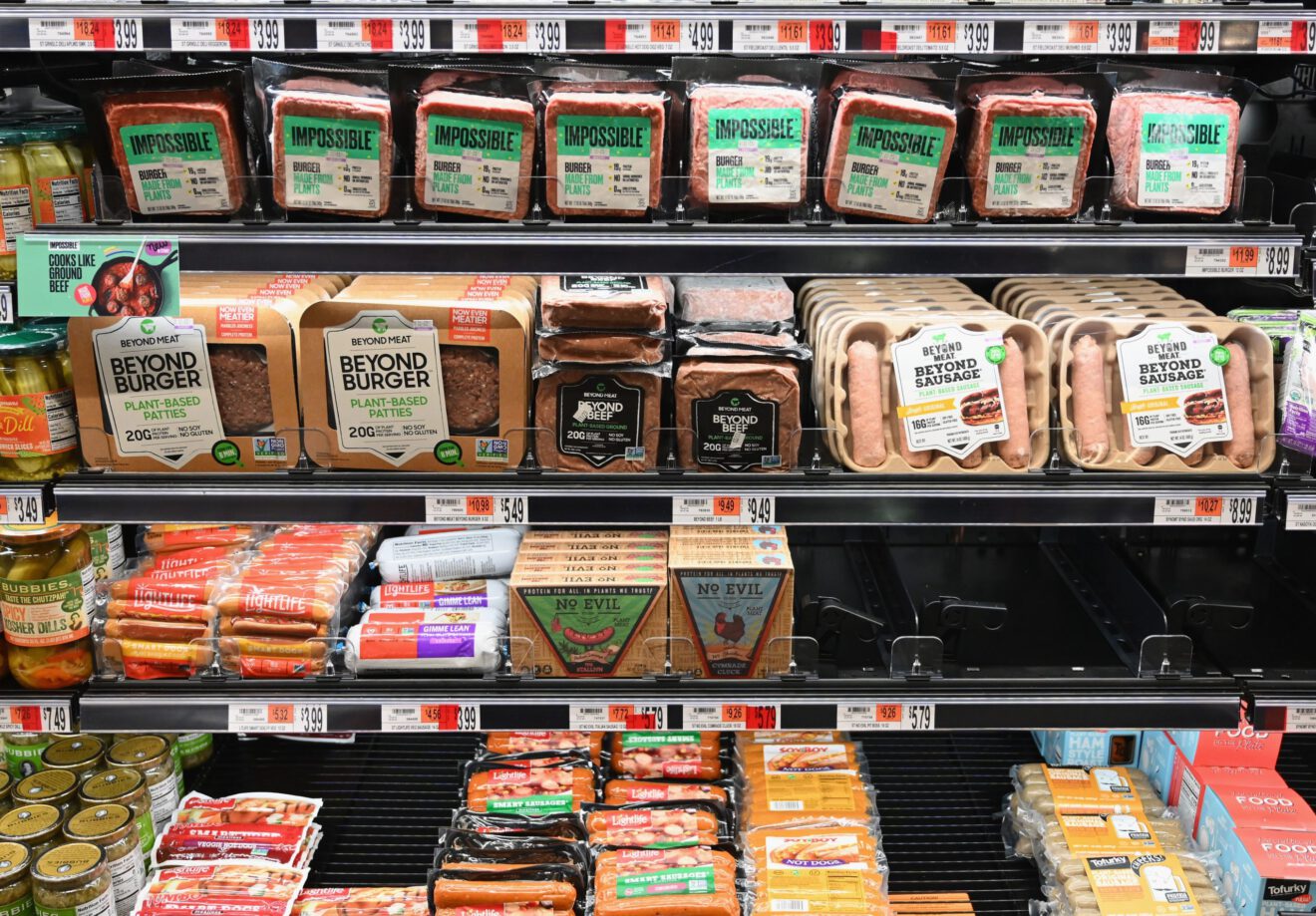Sign up for the FMI dailyLead today, free.
The first of November was World Vegan Day, a day designed to celebrate the growth of plant-based dining and the rising awareness of the benefits of veganism for people, animals and the planet.
Also this month, climate change took center stage at the COP 27 climate conference in Egypt. While much of the focus was on the fossil fuel industry, the event also brought attention to the need for changes in the way the world’s food is produced to meet the needs of a growing population while reducing the industry’s toll on the planet.
But despite global concerns for the earth and the animals, taste, price and the craving for new options are still the key drivers of consumers’ decisions to add more plant-based products to their diets.
In a survey earlier this year of 3,500 consumers by research firm Veylinx, 77% of respondents said they could be swayed to purchase more plant-based products, with 35% saying improved taste would drive that decision and 28% citing a lower price.
In contrast, concerns for the environment and animal welfare ranked last on the list of reasons respondents cited. In fact, warnings about the negative impacts of consuming animal products on health, the environment and animal welfare had the opposite effect – demand for alternatives dropped when these warnings were included.
First came the burgers
The Veylinx study found that plant-based burgers that closely replicate beef burgers were a popular choice for consumers. It’s a category that’s taken off in recent years with the rise of Beyond Meat and Impossible Foods, and the popularity of those first entrants into the market spawned a slew of brands making similar products.
Nestle’s Sweet Earth brand debuted the Awesome Burger 2.0 last year to offer a beefier plant-based burger option, and other plant-based players including Gardein, Lightlife, Alpha Foods, Morningstar Farms and Boca have all created their own versions.
Those launches have crowded the field with a slew of very similar options, and it’s likely most consumers who crave plant-based burgers have already found their favorites. And the combination of financial concerns and a taste for something new and different could be taking a toll on burger sales.
Sales of plant-based meat hit $1.4 billion last year, which was flat compared to 2020 when sales surged amid the pandemic, and up 19% from 2019, according to a report from the Plant Based Foods Association based on SPINS data.
Since April when the Veylinx report was released, inflation has taken a bigger bite out of grocery budgets, which likely made price a bigger factor in purchasing decisions. A more recent study from Deloitte shows that purchases of refrigerated plant-based meat alternatives declined 11.6% over the past year, while less-pricey frozen alternatives were just slightly down.
The craving for variety
Another trend arose from the Veylinx study results – consumers are eager to branch out from plant-based burgers to try more exotic meatless protein options.
“While we may be approaching a saturation point for products like burger patties and hot dogs—making it difficult to win shelf space and market share—our research shows there are still plenty of categories like seafood, jerky, and ready-to-eat meals where consumers are seeking more varied plant-based options, ” said Veylinx CEO Anouar El Haji said in a news release. “Brands can succeed in these categories by launching products that are delicious and priced competitively, even if they don’t duplicate the taste and texture of meat.”
This trend is born out in the report from the Plant Based Foods Association, which found that sales of plant-based meatballs grew 12% last year. Retail sales of vegan versions of chicken nuggets, strips and cutlets doubled over the past three years and sales of plant-based deli slices were up 8% from 2020.
And plenty of companies, from big players to startups, are venturing beyond plant-based burgers to tempt consumers with vegan alternatives to their traditional favorites including bacon and seafood.
Soy- and tempeh-based alternatives to bacon have been around for a while, offering the smoky, salty flavor of the popular breakfast meat if not the texture. Now, some startups are creating plant-based bacon that more closely resembles the original.
Hooray Foods rolled out its plant-based bacon to retailers nationwide this year and expanded into foodservice in partnership with New York-based Just Salad.
Another company, MyForest Foods, showed off its bacon made from mushroom roots called mycelium at the Plant Based World Expo in New York City in September.
MyForest Foods was one of seven finalists in the best meat alternative category of the 2022 World Plant-Based Awards, which were announced on the second day of the show. Only one burger brand – NotCo’s NotBurger – made the list of finalists. Instead, the roster was populated with plant-based alternatives to chicken, bologna and bacon, and the winner in the category was pulled pork from The Mushroom Meat Co.
Plant-based seafood alternatives are also growing in popularity as some brands grow increasingly closer to the originals. The Plant Based Seafood Company, a women-owned venture, created the Mind Blown brand to promote its vegan versions of crab cakes and scallops.
The future
The Veylinx study found generational differences in peoples’ openness to trying new plant-based foods, with younger consumers more likely to say they support policy changes that would promote consumption of plant-based protein alternatives.
And that openness makes college campuses a great space for culinary innovation, chef Jennifer DiFrancesco, director of culinary innovation for Sodexo Campus, said during a panel at the Plant Based World Expo.
“We have this captive audience that’s demanding it,” DiFrancesco said.
Read more from SmartBrief:
- Functional fungi: Mushroom-based drinks deliver health benefits
- Exploring the next generation of plant-based innovation
- The changing face of plant-based dining in the digital age
________________________________________________
If you liked this article, sign up for SmartBrief’s free email newsletter from the Food Industry Association. It’s among SmartBrief’s more than 250 industry-focused newsletters.
